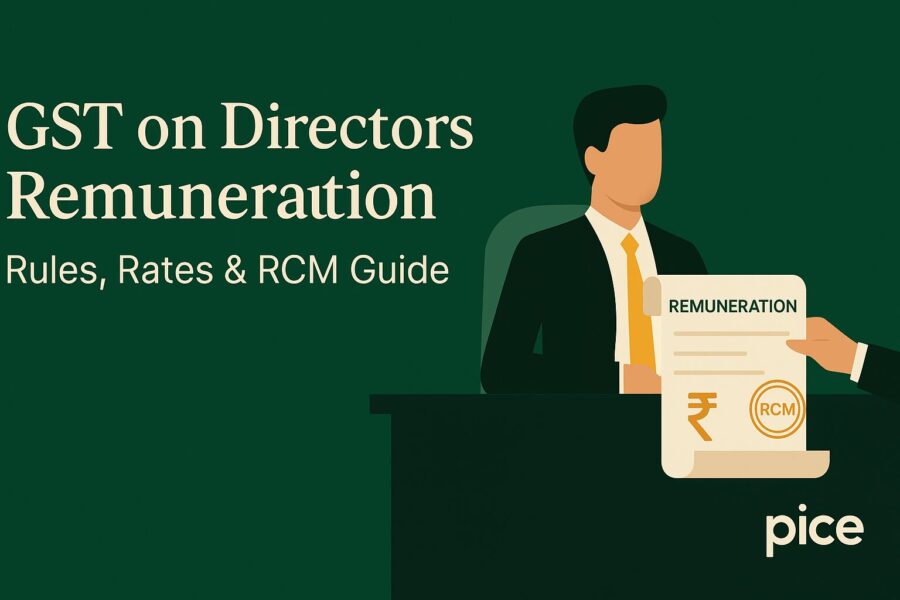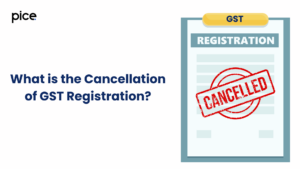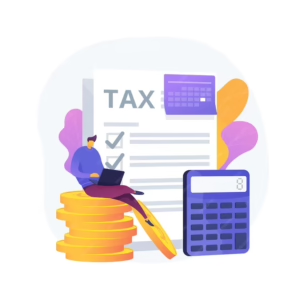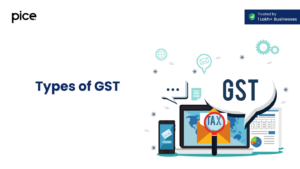GST on Directors Remuneration: Rules, Rates & RCM Guide
- 14 Nov 25
- 7 mins

GST on Directors Remuneration: Rules, Rates & RCM Guide
Key Takeaways
- GST is not applicable on directors who are employees and receive salary with TDS under Section 192.
- An 18% GST under Reverse Charge Mechanism applies when directors are paid professional fees or sitting fees.
- Non-executive and independent directors are always liable for GST since no employer-employee relationship exists.
- Companies, not directors, must pay GST on taxable director remuneration through the RCM.
- CBIC Circular No. 140/10/2020 clearly differentiates GST applicability based on whether the director is an employee or not.
Applicability of GST on directors' remuneration has been a topic of large-scale discussions in India. With more than 1.4 crore companies under the Goods & Services Tax law till the end of the previous financial year, it is now strictly essential to understand the intricacies of paying a director under GST.
Recent circulars and advance rulings have brought necessary division on the circumstances, rates and modes of GST payments.
Clarification of the GST Applied on an Executive Director’s Remuneration
Director's remuneration Circular No. 140/10/2020, issued on 10th June 2020 by the Central Board of Indirect Taxes and Customs (CBIC), is the guiding document for GST on directors' remuneration. The CBIC makes a difference between the directors who are either employees or non-employees of a company.
Situation 1: Where the Whole-Time Director is an Employee of the Company
GST does not need to be applicable in the event where the whole time director (executive director) is in a regular employer-employee relationship with the company. Such a relationship has the backing of the payment of remuneration in the form of salary, getting the income tax deducted on the same under Section 192 of the Income Tax Act, 1961 and recording the expense as salaries in the books of the company.
When this happens, the services that the director has provided will be under Schedule III of the CGST, which does not count employer-employee service as a GST.
Example: A company pays a monthly salary to its Managing Director, so no GST is charged on such salary payment, as the TDS is deducted under Section 192.
Situation 2: Where the Whole-Time Director is Not an Employee of the Company
Where the relationship between the director and the company is not that of employer and employee, or the remuneration is not considered as salary (say that remuneration is paid as professional service fees, sitting fees, etc.), then GST is levied.
TDS is deducted in such situations against Section 194J (professional fees) and it becomes the duty of the company to settle GST under the reverse charge mechanism (RCM).
The rate to be applied is normally 18% GST and also the company being the receiver of the service shall pay the tax.
Example: An 18% GST will be levied (based on the Reverse Charge Mechanism) on the company that hires a whole-time director and pays consultancy fees or any other wage that is not his salary.
Treatment of GST Rates on Non-Executive Directors' Remuneration
Individuals who are not involved in the day-to-day running of a company are non-executive directors who are not considered 'employees'. Remuneration which they receive, be it in the form of sitting fees, commission or any other form, is always liable to GST.
These amounts are subject to GST at a rate of 18% to the company by way of the reverse charge mechanism. This applies irrespective of the nomenclature of the payment, provided there is no employer-employee relationship.
GST Applicability on Fees of Independent Directors
Independent directors are clearly outlined in Section 149(6) of the Companies Act, 2013. They should not have any significant financial ties to the company, apart from the fees they earn for their directorship.
When it comes to GST, it is important to know that it applies to all fees paid to independent directors since they are not considered employees of the company. The company is responsible for paying GST at a rate of 18% through the reverse charge mechanism for any payments made to independent directors.
This rule is taken seriously, and companies need to stay on top of their compliance to steer clear of any penalties.
GST Rate on Directors' Fees
The standard GST on directors' remuneration, where applicable, is 18%. This rate applies to all taxable payments to directors, including non-executive and independent directors, as well as executive directors where the payment is not classified as salary.
Furthermore, the reverse charge mechanism (RCM) is a prime requirement, which means that the company, and not the director, is responsible for paying the GST to the government.
Conclusion
The GST on a director's pay genuinely depends on how that director is connected to the company. If the director is also an employee and receives a salary, then GST does not come into play.
But for directors who are not employees, like non-executive or independent directors, or if they are getting paid as professional consultants, then an 18% GST is attached under the reverse charge mechanism.
With more people taking on directorships and regulations tightening up, companies must maintain direct tax compliance. After all, keeping up with the latest clarifications from the CBIC and having clear records for the Income Tax Department is vital.
💡If you want to streamline your payment and make GST payments via credit, debit card or UPI, consider using the PICE App. Explore the PICE App today and take your business to new heights.
 By
By 

















